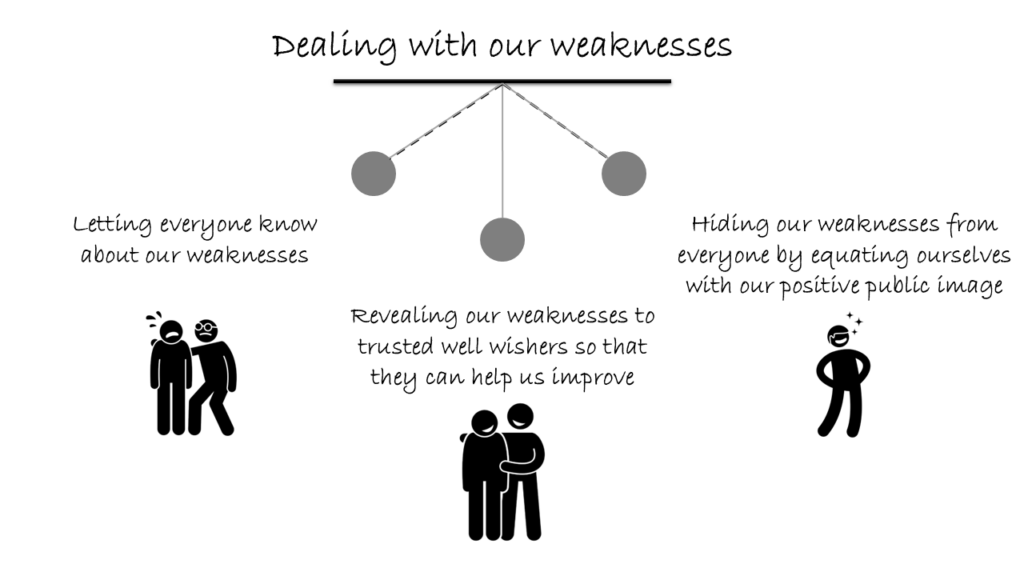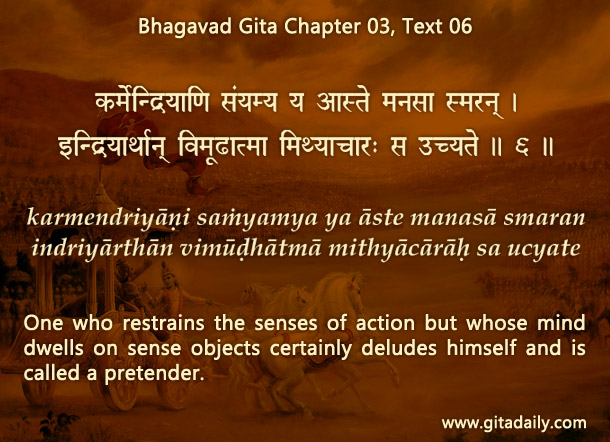
Balancing authenticity and service: Navigating inner-outer differences
We all have weaknesses that sometimes lead to lapses in self-discipline and spirituality. For those in visible leadership roles within communities striving for high moral or spiritual standards, such lapses can adversely affect not just individuals but the broader community. This often necessitates maintaining a public image that may not fully align with our private reality.
When does the inner-outer difference become hypocritical?
The Bhagavad-Gita (3.6) warns against hypocrisy, which arises when:
- We maintain an inner-outer difference solely to seek prestige.
- We make no genuine effort to rectify the gap between who we appear to be and who we are.
- We privately scheme to indulge in lower desires while presenting a virtuous facade.
However, not all inner-outer differences are hypocritical. When the primary intention is to avoid discouraging others, the difference can be seen as a matter of service.
The analogy of the wounded general
A military general, even when wounded, may conceal their injuries to maintain the morale of their soldiers. However, even such a heroic general must eventually reveal their wounds to a doctor for treatment. Similarly:
Concealing our struggles from the public can serve to protect the morale of the community.
Revealing our struggles to trusted well-wishers ensures we receive guidance and healing.
Without such disclosure, unresolved issues may worsen, undermining both our well-being and the community’s morale.
Striking the balance: Service and purification
Service-oriented concealment: Concealing our moral struggles or lapses is acceptable when it is done to prevent unnecessary agitation within the community.
Purification through vulnerability: We must simultaneously work toward resolving the inner-outer gap by being vulnerable before trusted individuals who are wise and mature enough to guide us.
Trusted well-wishers can challenge assumptions and inspire us to grow, ensuring that our service attitude is coupled with devotional prayerfulness. This combination will ultimately strengthen and transform us positively.
Summary:
Just as a general may conceal wounds to maintain troop morale but must reveal them to a doctor for healing, we may hide our struggles from the broader community while seeking help from trusted individuals.
Inner-outer differences become hypocritical when used for prestige without genuine efforts at self-improvement.
Such differences can be a form of service if they protect the community while we earnestly work on aligning inner substance with outer appearance.
Think it over:
Reflect on any inner-outer differences in your life. Are they motivated by service or the pursuit of prestige?
Consider a weakness you are struggling with. Is there at least one trusted person you can be vulnerable with to seek guidance?
What qualities would you look for in someone you trust with your vulnerabilities, and how can you cultivate similar qualities to become trustworthy for others?
***
03.06 One who restrains the senses of action but whose mind dwells on sense objects certainly deludes himself and is called a pretender.


Leave A Comment